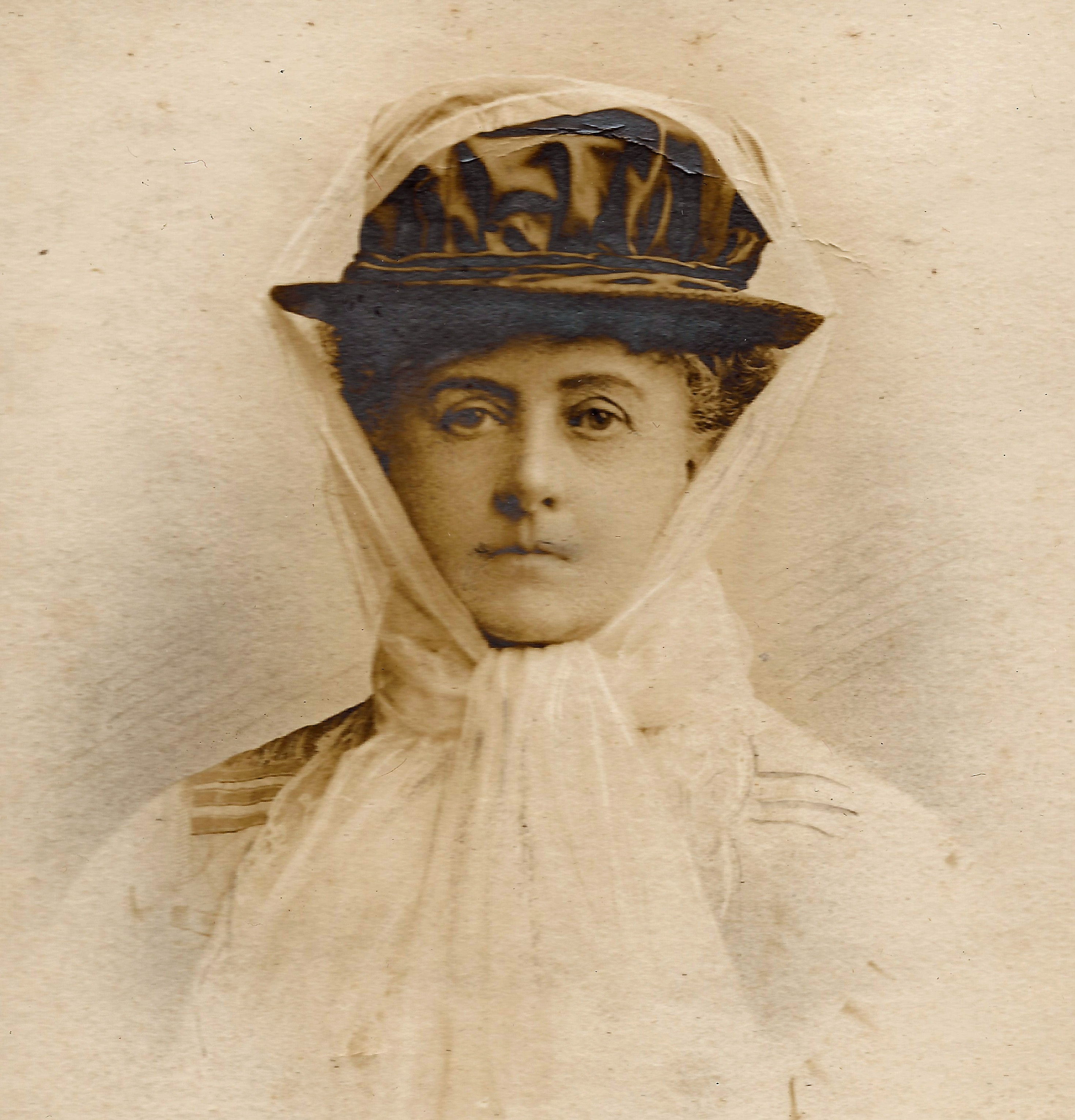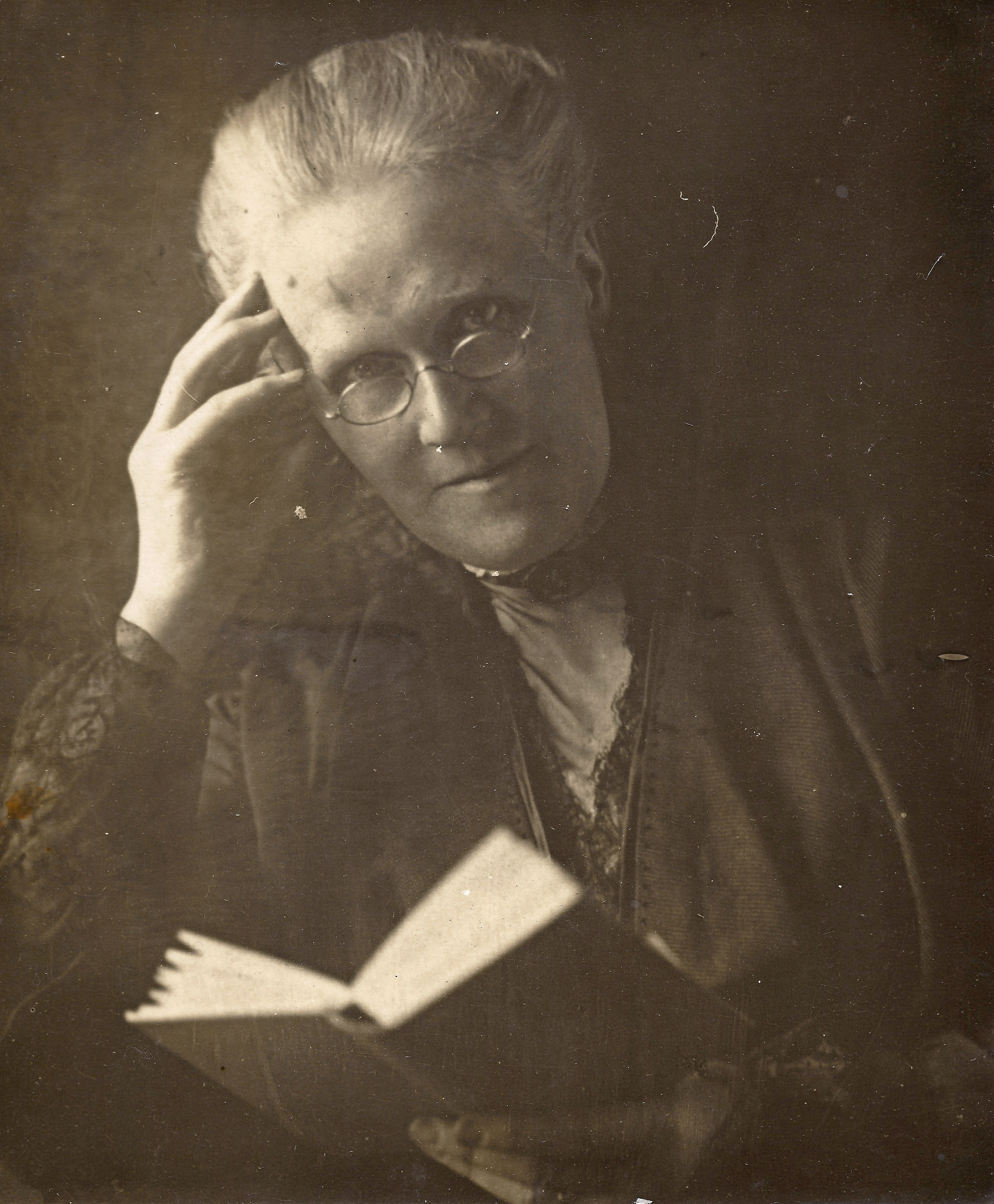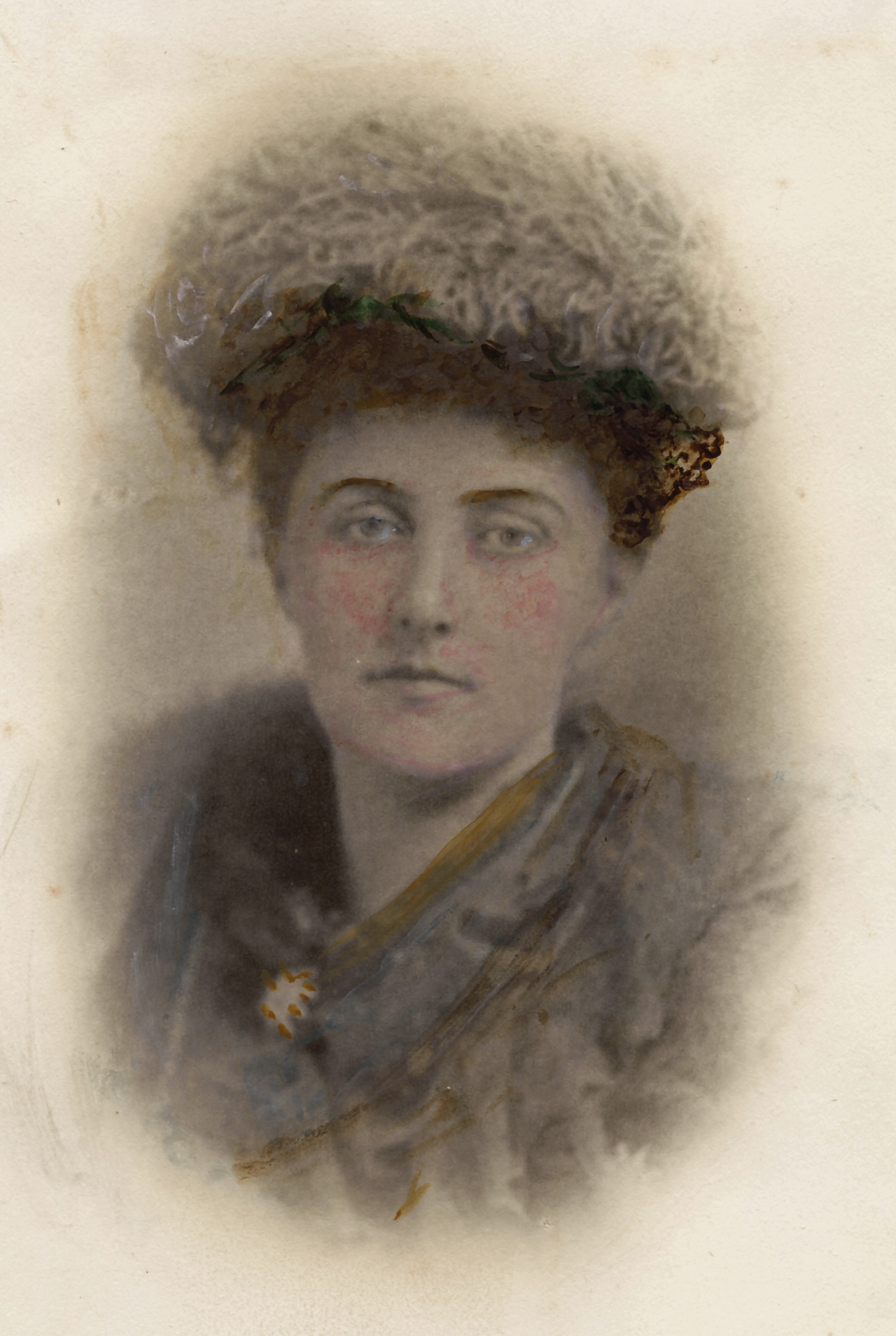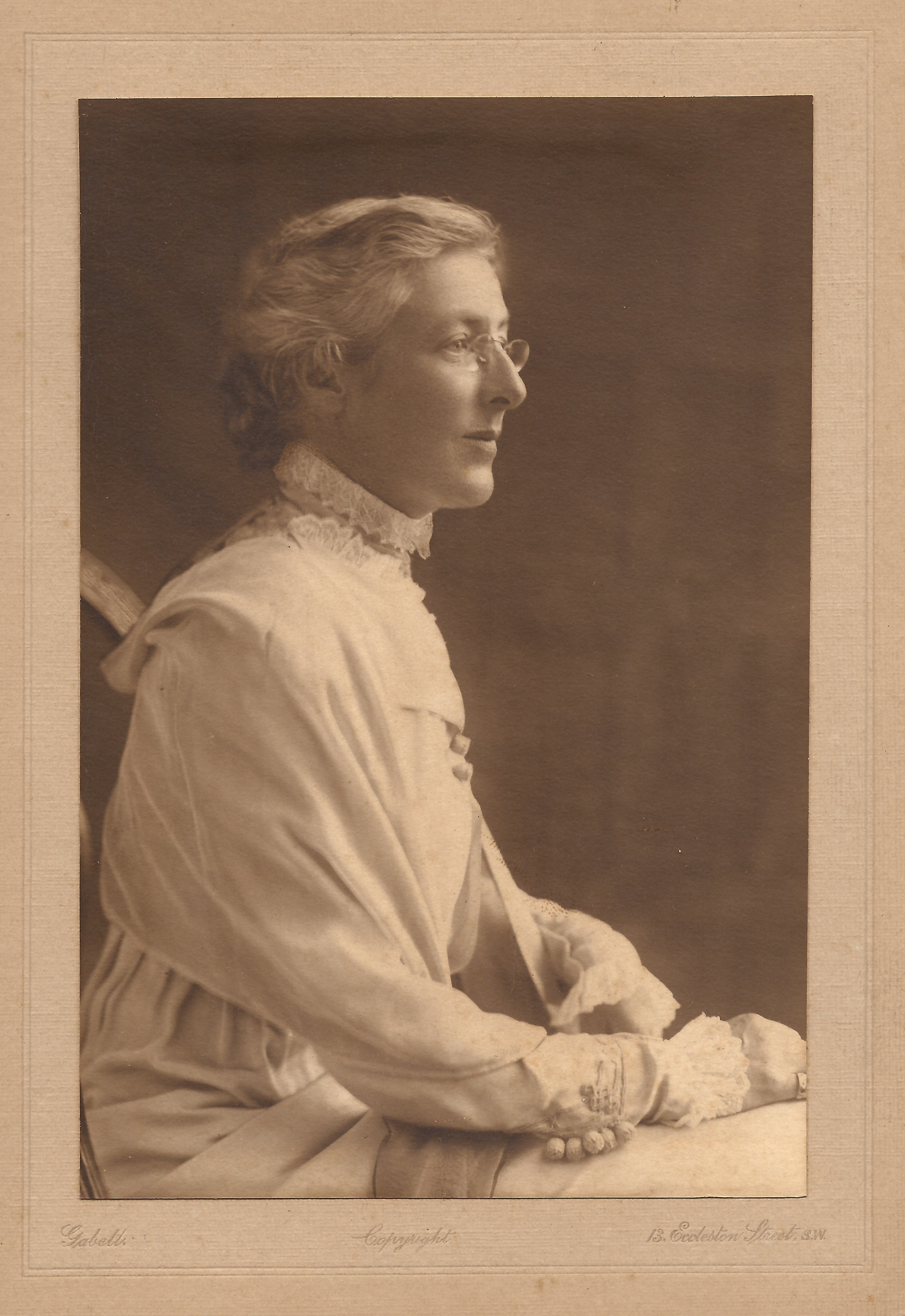'She is no more insane or near it than I am'
written by volunteer Adrian Bean
The statement isn’t really a compliment is it. At best, it’s very very faint praise. The implication is that the person highlighted (and possibly the writer as well) might have some character traits that mark her as different from most of the population, that she could be considered irrational, not of sound mind or even “mad” enough to be put in a mental institution.
 Helen Shepstone, 1918
Helen Shepstone, 1918
The comment was made in September 1916 about Mabel Barltrop by Helen Shepstone in a letter to Rachel Fox, one of Mabel’s most important early followers. In fact, after Shepstone died Mabel renamed her Helen Exeter, declared that Exeter was the seventh great prophet of “The Visitation” and Mabel herself then became the eighth prophet, usually referred to as “Octavia.” Despite the apparently ambivalent nature of Shepstone’s comment and her doubts about Mabel’s claims, she believed that she was a remarkable person but in her letters to Fox she didn’t hold back on criticising Mabel’s character defects. The letter was written a few weeks before Mabel was released from a mental hospital, St Andrews Northampton, having been there since April 1915.
 Rachel Fox
Rachel Fox
Shepstone was a spiritualist living in South Africa, and from 1913 corresponded with Fox. Later, in August 1916, Mabel joined in with this correspondence. Shepstone’s letters are lengthy, often in a mixture of pen and pencil, and on occasion, afterthoughts written at ninety degrees to the main page content are crammed in. Most letters are written over a period of several days and normally include jottings and thoughts written in the early hours of the morning. The spelling is impeccable. Subjects covered include Shepstone asking for Fox’s help in having her book published, her life and medical problems in South Africa, news about the war, her experiences in becoming a spiritualist and the legacy of Joanna Southcott. Initially Shepstone is the lesser partner in the friendship but gradually she becomes more dominant and persuasive. She tells of several spirit guides, including one called Media, two with names beginning with “H” and latterly the most important one, St Andrew. As the friendship develops, Shepstone signs some letters as “Miriam” and refers wistfully to the biblical figures Rachel and Miriam.
Her spiritual beliefs are undoubtedly sincere, but a sceptic would consider much of what she writes as being flights of fantasy or even unbalanced.
 Helen Shepstone
Helen Shepstone
Even after she moved to England (to Exeter, hence her eventual title) she never met Mabel, but her letters reveal an astute interpretation on Mabel’s character and defects taken from correspondence with her and others. It’s impossible to know for sure, but for many, her interpretation seems spot-on.
She describes her as: “one of those vivid creatures who feel all things more than average people…a brain of great brilliancy…a very tender heart…a nervous system taut like a bow…she lacks self-command, self-control, throwing judgment calmness and discretion to the winds…defeats her own end by antagonising things of power such as Bishops.” Essentially, she considers that Mabel would get further if she calmed down and had self-control. She likens her to a beautiful ship sailing through storms in unknown waters, being blown about by winds from different directions but is without ballast so is in danger of capsizing. Or again, is like a handsome horse of great power that fights against the harness and gets itself into a frenzy whereas a calmer horse would assiduously go about its task. “She cannot tone herself down” when in the environment of her community in Bedford, and the danger is that followers “excite her” to increasingly irrational actions that don’t help her.
Many critics of the Society would agree with one of her final conclusions: “It seems to me that the little group in Bedford is developing into a mutual admiration society which enormously increases Mabel’s peculiar failings i.e. egoism and domination…she is getting more unbalanced.”
 Rachel Fox
Rachel Fox
Shepstone’s correspondence with Fox ended in 1918. One of her spirit guides told her that the time was right to return to South Africa; she followed the advice, but died when her ship was torpedoed off Plymouth.






